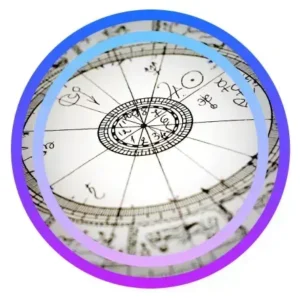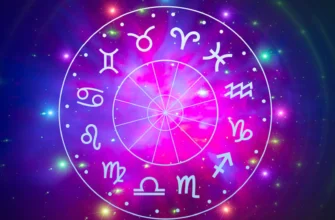Saturn conjunct Pluto in synastry forms one of the most intense karmic signatures in relationship astrology. In synastry chart interpretation, Saturn represents discipline, responsibility, and the slow weight of time, while Pluto symbolizes transformation, destruction, and rebirth.
When these two meet, the connection feels fated — as if one partner becomes the catalyst for the other’s deepest restructuring. In relationship synastry, this aspect can create a dynamic where stability is constantly tested by inner pressure and psychological truths. Partners may feel both challenged and drawn to each other with unusual depth.
A synastry chart compatibility report often describes this conjunction as a “pressure chamber” that either shapes a diamond or breaks the structure completely. If both individuals commit to growth, synastry chart compatibility becomes powerful; if they resist change, the intensity may feel overwhelming. This is a relationship where karma speaks loudly and transformation is unavoidable.
Saturn represents structure, authority, practical resources, social status, worldly achievement, discipline, and the accumulated wealth and position gained through years of responsible effort in the Birth Chart. Pluto embodies obsessive desire, transformation through destruction, karmic debts, psychological compulsion, and the capacity to completely annihilate whatever it touches – either purifying through devastating loss or simply destroying without redemption when operating through shadow expressions of greed, rage, and vindictive resentment. When these outer planets conjoin – both associated with karma and past-life lessons – they create relationship reaching “climax in terms of reincarnation and destiny,” where unresolved entanglements regarding money, sex, and power from previous incarnations must be settled in current lifetime regardless of conscious desires or social consequences.
The conjunction, as astrology’s most potent aspect merging planetary energies completely, creates relationship where Saturn and Pluto cannot separate their influences – Saturn inevitably provides Pluto with resources, position, and worldly support, while Pluto inevitably becomes threat to Saturn’s stability through obsessive attachments, compulsive desires, and potential for vindictive destruction if Pluto’s needs for possession and control remain unsatisfied. Both planets’ natal aspects determine whether relationship exhausts both parties or whether they can channel intense energies toward positive transformation rather than mutual destruction.
The Natal Aspect Quality: Determining Exhaustion or Empowerment
Before assessing Saturn conjunct Pluto synastry, examining each person’s natal Saturn and Pluto aspects proves crucial: “If one of them has negative aspect, then both will feel very exhausted during Saturn-Pluto conjunction.” Challenging natal aspects (squares, oppositions) to Saturn or Pluto indicate that person already struggles internally with that planetary energy – Saturn with excessive rigidity, fear, or punitive restriction; Pluto with obsessive compulsion, vindictive rage, or destructive transformation without renewal.
When such person encounters another whose planet conjuncts their afflicted Saturn or Pluto, the synastry conjunction activates and amplifies their natal challenges. “If Saturn itself has positive aspects, while Pluto has negative aspects, it means that in this relationship, Pluto side will find it more difficult to use positive energy to complete tasks of Saturn-Pluto conjunction, and vice versa.” Afflicted Pluto encounters well-aspected Saturn struggles to transform positively – their obsessive compulsions, vindictive impulses, and destructive patterns overwhelm Saturn’s constructive support, turning relationship into vehicle for acting out shadow material rather than genuine evolutionary growth.
Conversely, well-aspected Pluto encountering afflicted Saturn receives teaching and support that “may not be very positive” – Saturn’s excessive rigidity, punitive judgment, or fear-based restriction prevents Pluto from accessing the constructive guidance and practical resources that healthy Saturn would provide. The relationship becomes karmic lesson but through suffering rather than empowerment, as Saturn’s dysfunction prevents Pluto’s transformation while Pluto’s intensity triggers Saturn’s worst controlling and limiting impulses.
This natal aspect analysis provides essential context for understanding whether Saturn-Pluto conjunction will enable mutual growth or mutual destruction – both outcomes remain possible depending on whether each planet operates primarily through constructive or shadow expressions in their respective natal charts before relationship even begins.
When using free astrology chart readings for relationship assessment, examining both people’s natal Saturn and Pluto aspects before evaluating synastry aspects prevents overestimating or underestimating the relationship’s karmic intensity and potential for either transformation or devastation depending on individual planetary health and conscious awareness both people bring to inherently challenging configuration.
The Mentor-Student Dynamic: Saturn Teaches, Pluto Learns Soul Lessons
In Saturn conjunct Pluto relationships, “Saturn plays role of mentor or supporter in real world” while “Pluto needs to learn its soul lessons through Saturn.” Saturn provides practical teaching, worldly resources, social position, and material support enabling Pluto’s karmic evolution and psychological transformation. Saturn functions as authority figure, parental presence, or established power providing Pluto with opportunities, resources, and real-world position Pluto could not access independently.
Prince Charles and Princess Diana exemplify this dynamic: “Charles’s Saturn was conjunct Diana’s Pluto. Charles’s Saturn provided Diana with ample resources, while Diana’s Pluto desperately wanted to possess and control Charles.” As prince, Charles gave Diana everything worldly – royal title, wealth, social position, global platform, children connecting her permanently to royal lineage. His Saturn provided her Pluto with “real resources it needed, allowing Pluto to fully exert its positive or negative energy.”
However, the mentor-student relationship proves double-edged: while Saturn enables Pluto’s evolution, Pluto simultaneously threatens Saturn’s stability. “Pluto is often Saturn’s time bomb” – dormant danger that could explode at any moment destroying Saturn’s carefully constructed life, reputation, and accumulated resources. Diana “was Charlie’s time bomb” – once her Pluto detonated through divorce, scandal, and public exposure of Charles’s infidelity and inadequacies, “it destroyed Charlie’s reputation and future, and also took away his wealth.”
This reveals Saturn-Pluto conjunction’s terrible irony: Saturn must provide resources and support enabling Pluto’s power and position, yet this very support creates weapon Pluto can later use destroying Saturn if Pluto’s obsessive needs for possession and control remain unsatisfied. Saturn essentially arms their own destruction, creating conditions where Pluto gains sufficient power and leverage to devastate Saturn’s worldly position should relationship end badly or Pluto’s vindictive impulses activate.
The mentor role proves inescapable – Saturn cannot refuse without violating karmic contract bringing these souls together. Yet fulfilling the role creates vulnerability and potential devastation Saturn cannot entirely prevent regardless of precautions or boundaries attempted. The conjunction demands Saturn risk everything providing Pluto with evolutionary opportunities and practical support, knowing Pluto might eventually use accumulated power destroying everything Saturn values and has worked to build.
The Karmic Climax: When Destiny’s Theme Finally Reveals
“Saturn and Pluto are both outer planets, and both are associated with karmic resolution. Therefore, when Saturn forms aspect with other person’s Pluto, relationship often reaches climax in terms of reincarnation and destiny.” The relationship represents not random encounter but destined reunion of souls carrying unfinished business from previous incarnations requiring current lifetime to resolve or complete whatever lessons remained unlearned, whatever debts remained unpaid, whatever transformation remained unachieved in past lives when these souls previously encountered each other.
“The climax inevitably arises from interweaving and layering of other fragmented plot points. It is called climax because audience must first witness various preceding plots; preceding stories serve as prelude to final explosion.” This theatrical metaphor suggests Saturn-Pluto relationships don’t reveal their true karmic nature immediately – both people initially experience surface dynamics involving attraction, shared goals, practical cooperation, or simply family bonds (parent-child, siblings) that seem explicable through ordinary psychology and social circumstances.
Only when crisis erupts – divorce scandal, betrayal exposed, vindictive lawsuit, public destruction of reputation – do both people and outside observers finally recognize the relationship’s actual theme: karmic debt collection, soul lesson completion, or destined destruction enabling transformation through devastating loss. “Only when climax occurs do people realize that play’s theme is actually about this event” – all previous interactions served as preparation for karmic reckoning that relationship existed to deliver.
“Behind all stories lay huge theme: people involved were unaware of hidden lessons behind their fate when they met.” Charles and Diana believed they married for love, dynastic duty, or practical compatibility – not recognizing their union served primarily as vehicle for completing karmic cycle involving past-life entanglements around possession, control, and vindictive destruction neither consciously remembered yet both unconsciously reenacted through their relationship’s tragic trajectory from fairy-tale romance to bitter public warfare.
This hidden nature makes Saturn-Pluto conjunctions particularly dangerous – both people invest deeply in relationship believing it serves conscious purposes (love, family, career advancement, social position) without recognizing the karmic time bomb ticking beneath surface dynamics, destined to explode eventually regardless of conscious efforts at maintaining harmony or preventing conflict through appeasement or boundary enforcement.
The Time Bomb: Pluto as Existential Threat
“Pluto is often Saturn’s time bomb” – perhaps Saturn conjunct Pluto’s most accurate and chilling characterization. Pluto represents potential for total destruction of Saturn’s worldly position, reputation, resources, and social standing – destruction that might never occur if Pluto remains satisfied or transforms positively, yet remains permanent possibility hanging over relationship like Damocles’ sword creating anxiety and vulnerability Saturn cannot entirely escape regardless of precautions.
The illegitimate daughter example illustrates perfectly: father’s Saturn conjunct daughter’s Pluto created situation where “daughter’s birth has indeed brought trouble to father’s life.” Currently young and powerless, she poses no immediate threat – yet “if she wishes to claim her lineage later in life, she could use DNA technology to claim share of his wealth.” Her mere existence represents time bomb that could detonate anytime she chooses, destroying father’s legitimate family structure, social reputation, and financial security through legal claims or public exposure he cannot prevent once she reaches adulthood and gains independent agency.
“This daughter is her father’s time bomb, just as Diana was Charlie’s. Once Pluto detonates, it can often destroy Saturn’s tangible resources.” Diana’s Pluto explosion through divorce, media warfare, and public sympathy didn’t merely inconvenience Charles – it fundamentally damaged his reputation, questioned his fitness for kingship, drained his wealth through settlement, and permanently altered how British public and global observers perceived him. The explosion proved so devastating that years or decades later, its effects still shaped his social position and personal happiness despite relationship having formally ended through divorce.
The time bomb metaphor suggests several crucial characteristics: unpredictability (explosion might occur anytime or never), disproportionate destructive power (damage far exceeding what seems reasonable given offense), and Saturn’s helplessness (once explosion begins, Saturn cannot control or limit devastation despite resources, authority, or social position that prove useless against Pluto’s transformative fury).
This creates permanent anxiety for conscious Saturn individuals recognizing their vulnerability: they know Pluto could destroy them yet cannot prevent this destruction through normal strategies (boundaries, legal protection, power dynamics) because Pluto operates through psychological compulsion and vindictive rage transcending rational cost-benefit analysis or normal social constraints limiting most people’s destructive impulses.
Money, Sex, and Power: The Unholy Trinity
“When Saturn conjuncts other person’s Pluto, it signifies unresolved entanglements regarding money, sex, and power from past lives, which must be settled in this life.” These three domains represent Pluto’s primary obsessions – the territories where human psychology proves most compulsive, most vindictive, and least rational. Saturn-Pluto conjunction ensures relationship will involve intense dynamics around all three, with Pluto seeking satisfaction, possession, or control that Saturn either provides (creating temporary peace but future vulnerability) or denies (triggering immediate or eventual explosive retaliation).
In Charles-Diana relationship, all three operated intensely: sex (Charles’s affair, Diana’s affairs, sexual incompatibility), power (Diana’s desire to possess and control Charles, Charles’s royal authority and ability to maintain mistress despite marriage), and money (Diana’s enormous divorce settlement extracting wealth from Charles and royal family). Diana “couldn’t completely possess or control Charlie, so she was left with only one option: money. When Diana and Charlie divorced, Charlie felt as if he had been skinned alive by Diana, leaving him heavily in debt.”
This illustrates Pluto’s characteristic displacement: when primary desire (total possession and control of beloved) proves unobtainable, Pluto redirects obsessive energy toward achievable target (financial devastation) serving both practical purposes (securing material independence and lifestyle) and psychological purposes (punishing Saturn for failing to satisfy Pluto’s possessive needs, demonstrating power over Saturn despite losing romantic control).
“Negative Pluto’s greatest desires are often nothing more than possession of money and power” – when Pluto cannot achieve loving union or total possession of desired person, greed and vindictive rage become fallback positions allowing Pluto to at least extract material compensation or inflict suffering on Saturn who failed or refused to satisfy Pluto’s compulsive attachment and control needs. The money becomes both practical necessity (Pluto needs resources for independence) and symbolic victory (proving Pluto retains power over Saturn even after relationship ends).
However, “there are many ways for Diana to resolve issue of not receiving Charlie’s love” – suggesting Pluto always possesses choices about how to handle disappointment, betrayal, or unsatisfied desire. Positive transformation, spiritual growth, rechanneling energy toward humanitarian service all represent alternatives to vindictive destruction. Yet shadow Pluto consistently chooses devastation over growth, resentment over release, because transformation requires consciousness, maturity, and spiritual development afflicted Pluto often lacks despite possessing enormous power for either evolution or destruction depending on consciousness level and willingness to work through rather than act out karmic patterns.
Karmic Debt and Conscious Choice
Saturn conjunct Pluto in synastry ultimately represents karmic contract between souls agreeing before birth to complete unfinished business from previous incarnations – business potentially involving past-life resentments, unpaid debts, incomplete lessons, or transformation arrested midpoint requiring current lifetime to finish what previous incarnation began. The conjunction creates relationship of extraordinary intensity, profound significance, and potential danger where Saturn provides resources and worldly support enabling Pluto’s evolution yet simultaneously becomes vulnerable to Pluto’s destructive power if Pluto operates through shadow expressions or if their soul lessons involve Saturn experiencing devastating loss as teacher about impermanence, humility, or releasing attachment to worldly position.
The aspect doesn’t predetermine outcomes – both constructive collaboration and mutual destruction remain possible depending on natal aspects, consciousness levels, and choices both people make when confronting karmic patterns activated through their conjunction. Well-aspected Saturn and Pluto with conscious awareness might channel intense energies toward “important projects related to technology, body, or spirituality” – collaborating powerfully on work requiring both practical discipline and transformative depth.
